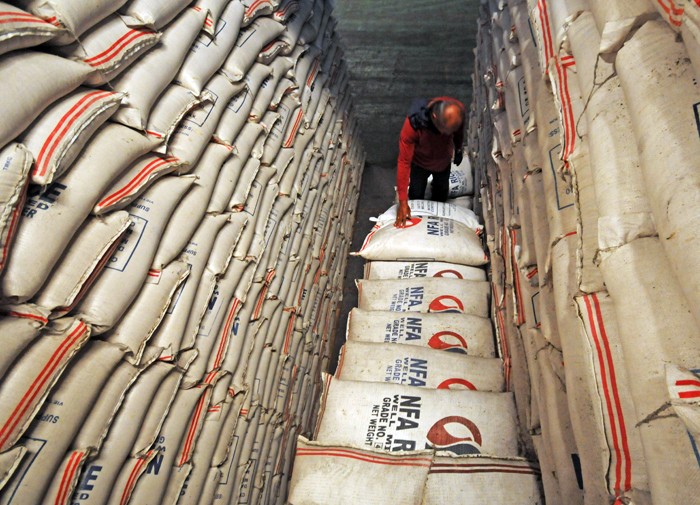- States Producing 5.7 Million Metric Tonnes of Rice
The United Kingdom’s Department for International Development has said that 18 states in Nigeria now produce about 5.7 million metric tonnes of milled rice, bringing the country’s production closer to the seven million metric tonnes projected milled rice requirement for 2016.
According to a report on Growth and Employment in States, which was funded by the DFID, the 18 states were selected based on their contributions to national rice production as per the 2015 Agricultural Production Survey.
The April 2017 report, which was titled, ‘Mapping of rice production clusters in Nigeria’, and was made available to our correspondent in Abuja on Sunday by the Federal Ministry of Agriculture and Rural Development, noted that in the 18 states, rice farming was widely spread across 165 clusters and 2,812 sub-clusters.
It said, “The 2016 total paddy production estimate is put at 17.5 million tonnes with a marketing surplus after post-harvest losses and domestic use of 11.4 million tonnes, equivalent to 5.7 million tonnes milled rice.
“This is just below the total national demand for rice, which was projected to reach seven million tonnes in 2016, and it implies that the country is progressing towards its goal of rice self-sufficiency.”
The report noted that Kebbi State led the pack with the production at 3.56 million metric tonnes for the wet and dry seasons combined, followed by Kano at 2.82 million metric tonnes.
Kebbi produced 2.05 million metric tonnes in the wet season and 1.51 million metric tonnes in the dry season, while Kano produced 1.86 million metric tonnes and 0.96 million metric tonnes during the wet and dry seasons, respectively in the same period.
It, however, stated that only 10 of the 18 states were involved in the dry season production of rice, contributing 26.57 per cent of the total production.
The DFID report stated that a mapping exercise of rice production clusters through researchers’ and enumerators’ visits to rice production locations was carried out in the 18 states, which include Bauchi, Benue, Ebonyi, Ekiti, the Federal Capital Territory, Jigawa, Kaduna, Kano, Katsina and Kebbi.
Others are Kogi, Kwara, Nasarawa, Niger, Ogun, Sokoto, Taraba and Zamfara states.
Commenting on the development, an Abuja-based rice farmer and Head, Modern Agriculture Farms, Mr. Suleiman Kutunku, said Nigeria would have met the seven million metric tonnes target if not for the massive export of locally produced rice.
He said, “The problem we have why you may say we are not self-sufficient is because we allow what we produce to go out of the country. About 50 per cent of our produce is exported out of Nigeria by rice farmers, and this is the major cause for rice scarcity in some areas today.
“Had it been we stopped the export of grains, the rice production of last year alone was okay for us to say that we have attained sufficiency. But many rice farmers needed extra cash and so they preferred selling to other countries in order to make more income, hence depleting the availability of the commodity in Nigeria.
“However, we are very optimistic that in a couple of months, or before the year runs out, we will be self-sufficient in rice production in Nigeria and exporting the commodity will not put such strain on its availability locally.”

 Forex3 weeks ago
Forex3 weeks ago


 Naira2 weeks ago
Naira2 weeks ago
 Billionaire Watch2 weeks ago
Billionaire Watch2 weeks ago




 Naira2 weeks ago
Naira2 weeks ago




 Naira4 weeks ago
Naira4 weeks ago




 Naira2 weeks ago
Naira2 weeks ago


 Naira1 week ago
Naira1 week ago
 Banking Sector4 weeks ago
Banking Sector4 weeks ago





















